|
|
|
Книги издательства «Oxford University Press»
|
Stimulating activities within a graded syllabus, giving confidence in all four skills. |
|
Oxford A Level Mathematics for Edexcel covers the latest 2008 curriculum changes and also takes a completely fresh look at presenting the challenges of A Level. It specifically targets average students, with tactics designed to offer real chance of success to more students, as well as providing more stretch and challenge material. This Decision 1 book is fully updated to reflect the changes to the new Edexcel specification, meaning that it can now be studied with confidence at AS level. It also includes a background knowledge chapter to help bridge the gap between GCSE and A Level study. |
|
Oxford A Level Mathematics for Edexcel takes a completely fresh look at presenting the challenges of A Level. It specifically targets average students, with tactics designed to offer real chance of success to more students, as well as providing more stretch and challenge material. This Statistics 1 book includes a background knowledge chapter to help bridge the gap between GCSE and A level study. |
|
First published as part of the best-selling The Oxford Illustrated History of Britain, John Blair's Very Short Introduction to the Anglo-Saxon Age covers the emergence of the earliest English settlements to the Norman victory in 1066. This book is a brief introduction to the political, social, religious, and cultural history of Anglo-Saxon England. |
|
Beginning with a discussion of familiar images of the French Revolution, garnered from Dickens, Baroness Orczy, and Tolstoy, as well as the legends of let them eat cake, and tricolours, Doyle leads the reader to the realization that we are still living with developments and consequences of the French Revolution such as decimalization, and the whole ideology of human rights. Continuing with a brief survey of the old regime and how it collapsed, Doyle continues to ellucidate how the revolution happened: why did the revolutionaries quarrel with the king, the church and the rest of Europe, why this produced Terror, and finally how it accomplished rule by a general. The revolution destroyed the age-old cultural, institutional and social structures in France and beyond. This book looks at how the ancien regime became ancien as well as examining cases in which achievement failed to match ambition. Doyle explores the legacy of the revolution in the form of rationality in public affairs and responsible government, and finishes his examination of the revolution with a discussion as to why it has been so controversial. |
|
More than ever before, the Renaissance stands as one of the defining moments in world history. Between 1400 and 1600, European perceptions of society, culture, politics and even humanity itself emerged in ways that continue to affect not only Europe but the entire world. This wide-ranging exploration of the Renaissance sees the period as a time of unprecedented intellectual excitement and cultural experimentation and interaction on a global scale, alongside a darker side of religion, intolerance, slavery, and massive inequality of wealth and status. It guides the reader through the key issues that defined the period, from its art, architecture, and literature, to advancements in the fields of science, trade, and travel. In its incisive account of the complexities of the political and religious upheavals of the period, the book argues that Europe's reciprocal relationship with its eastern neighbours offers us a timely perspective on the Renaissance that still has much to teach us today. |
|
Almost twenty years after the Soviet Unions' end, what are we to make of its existence? Was it a heroic experiment, an unmitigated disaster, or a viable if flawed response to the modern world? Taking a fresh approach to the study of the Soviet Union, this Very Short Introduction blends political history with an investigation into the society and culture at the time. Mike Lovell examines aspects of patriotism, political violence, poverty, and ideology; and provides answers to some of the big questions about the Soviet experience. |
|
Where does our conscience come from? How reliable is it? In the West conscience has been relied upon for two thousand years as a judgement that distinguishes right from wrong. It has effortlessly moved through every period division and timeline between the ancient, medieval, and modern. The Romans identified it, the early Christians appropriated it, and Reformation Protestants and loyal Catholics relied upon its advice and admonition. Today it is embraced with equal conviction by non-religious and religious alike. Considering its deep historical roots and exploring what it has meant to successive generations, Paul Strohm highlights why this particularly European concept deserves its reputation as one of the prouder Western contributions to human rights and human dignity throughout the world. Using examples from popular culture including the Disney classic Pinocchio, as well as examples from contemporary politics, he explores the work of thinkers such as Nietzsche, Freud, and Aquinas, to show how and why conscience remains a motivating and important principle in the contemporary world. |
|
Tony Wright's Very Short Introduction to British Politics is an interpretative essay on the British political system, rather than an abbreviated textbook on how it currently works. He identifies key characteristics and ideas of the British tradition, and investigates what makes British politics distinctive, while emphasizing throughout how these characteristics are reflected in the way the political system functions. Each chapter is organized around a key theme, such as the constitution or political accountability, which is first established and then explored with examples and illustrations. In this new edition Wright considers how the system has recently changed and continues to do so, in light of the coalition government and the fall of New Labour, as well as the impact of the financial crisis and issues such as terrorism and immigration. |
|
This book introduces readers to the concepts of political philosophy. It starts by explaining why the subject is important and how it tackles basic ethical questions such as how should we live together in society? It looks at political authority, the reasons why we need politics at all, the limitations of politics, and whether there are areas of life that shouldn't be governed by politics. It explores the connections between political authority and justice, a constant theme in political philosophy, and the ways in which social justice can be used to regulate rather than destroy a market economy. David Miller discusses why nations are the natural units of government and whether the rise of multiculturalism and transnational co-operation will change this: will we ever see the formation of a world government? |
|
This Very Short Introduction to Christian ethics introduces the topic by examining its sources and historical basis. D. Stephen Long presents a discussion of the relationship between Christian ethics, modern, and postmodern ethics, and explores practical issues including sex, money, and power. Long recognises the inherent difficulties in bringing together Christian and ethics but argues that this is an important task for both the Christian faith and for ethics. Arguing that Christian ethics are not a precise science, but the cultivation of practical wisdom from a range of sources, Long also discusses some of the failures of the Christian tradition, including the crusades, the conquest, slavery, inquistions, and the Galileo affair. Placing them in the context of the theory and practice of ethics and their historical persepctive, he notes the challenges they raise for Christian ethics. He concludes with a discussion of their implications in the modern era, considering how this affects our lives in the present age. |

|
In 1961 John F. Kennedy pledged to put a man on the moon by the end of the decade. Nine years later, Neil Armstrong and Buzz Aldrin walked on the moon. Ten years later, Richard Nixon echoed this pledge by declaring a 'war' on cancer. More than 30 years later, however, cancer remains one of the largest causes of death worldwide, with around 1 in 3 developing the disease. Curing cancer is not rocket science, but the question is, why has cancer proved to be harder to tackle than the moon landings turned out to be? Cancer research is a major economic activity. There are constant improvements in treatment techniques that result in better cure rates and increased quality and quantity of life for those with the disease, yet stories of breakthroughs in a cure for cancer are often in the media. In this Very Short Introduction Nick James, founder of the CancerHelp UK website, examines the trends in diagnosis and treatment of the disease, as well as its economic consequences. Asking what cancer is and what causes it, he considers issues surrounding expensive drug development, what can be done to reduce the risk of developing cancer, and the use of complementary and alternative therapies. |
|
This is the tale of Snow White, transposed to New York in the 1920s. Snow White's wicked stepmother uses her position of influence in the city's underworld to contract the killing of Snow White. But the hired gun cannot shoot Snow White and abandons her instead to wander the streets. She stumbles into a club where the seven jazz-men take pity on her and she joins their band. A reporter who hears her sing propels her into the headlines... but her fame puts her once again in the sights of her evil stepmother. She is poisoned with a cocktail cherry. A shocked city mourns the death of the beautiful and talented Snow White but as her coffin is carried up the church steps by the grief-stricken jazz-men, Snow White's eyes open and her gaze is met by the reporter. They fall in love and live happily ever after. Fiona French's iconic re-imagining of a classic fairy tale, with stunning Art Deco illustrations, won the Kate Greenaway Medal in 1986. |
|
An outstanding new picture book with an extremely simple text — full of humour with a brilliant twist at the end. Hungry Hen eats and eats and grows fatter and fatter. High on the hill the fox watches and grows thinner and thinner. Until one day he can stand it no longer, but things do not turn out as expected! |

|
Piper is a little tiger cub whose daily dilemma will be familiar to toddlers everywhere. During the day he wants to be brave and fearless, he wants to do everything all by himself. But as bedtime approaches, Piper doesn't want to be brave, he wants to feel Mummy by his side. So every night he pads over to Mummy's bed. Through gentle demonstration that he is big enough to do all sorts of things all by himself, and reassuring him that she's never far away, Mummy is able to persuade Piper to sleep through the night in his own bed. Learning one of life's lessons becomes something to savour in this beautiful picture book that focuses on an important toddler milestone. |

|
The Winter's Tale is Shakespeare's most perfectly realized tragi-comedy, as notable for its tragic intensity as for its comic grace and, throughout, for the richness and complexity of its poetry. It concludes, moreover, with the most daring and moving reconciliation scene in all Shakespeare's plays. Though the title may suggest an escapist fantasy, recent criticism has seen in the play a profoundly realist psychology and a powerful commentary on the violence implicit in family relationships and deep, longlasting friendships. Stephen Orgel's edition considers the play in relation to Renaissance conceptions of both dramatic genre and the family, traces the changing critical and theatrical attitudes towards it, and places its psychological and dramatic conflicts within the Jacobean cultural and political context. The commentary pays special attention to the play's linguistic complexity, and the edition also includes a complete reprint of Shakespeare's source, Pandosto, by Robert Greene. |
|
As You Like It is Shakespeare's most light-hearted comedy, and its witty heroine Rosalind has his longest female role. In this edition, Alan Brissenden reassesses both its textual and performance history, showing how interpretations have changed since the first recorded production in 1740. He examines Shakespeare's sources and elucidates the central themes of love, pastoral, and doubleness. Detailed annotations investigate the allusive and often bawdy language, enabling student, actor, and director to savour the humour and the seriousness of the play to the full. |
|
Introduce one little boy with a rocket ship. Send him on an adventure to a faraway planet. Add one curious little alien-and you have My Alien and Me... an exciting story about celebrating differences and making friends. |

|
I see Troy in flames years from now — because Paris brings disaster to us, Queen Hecuba says about her son. Paris's father, King Priam, wants to kills him. But Paris lives, and later loves Helen — King Menelaus's queen — from Greece. When Paris brings Helen to Troy, war begins between the Trojans and Greeks. What happens when Paris's brother Hector and the Greek fighter Achilles meet in battle? Who wins the war, and how? Read Troy and find the answers. |
|
A day out with his dad Gordon turns into a nightmare for Bobby Berlin when something shocking happens that leaves Dad thinking it's 1977 and he's really 14. The only people Bobby can turn to for help are his best friend Mary and her gypsy grandmother. The problem is, they don't have a clue what to do either. Gordon is irrationally convinced that if he can just get to Dundee, everything will be OK — but he couldn't be more wrong. The east coast of Scotland is about to be hit by a tsunami. As the population flees, Gordon journeys towards the heart of danger, followed by Bobby and Mary, hell-bent on trying to stop him. What neither of the children knows is that Gordon was once an expert on tsunamis, and the government is trying to find him because they want his help. But the teenage Gordon is terrified of anyone in authority. Every time the police or army close in, he fights desperately to escape... |
|